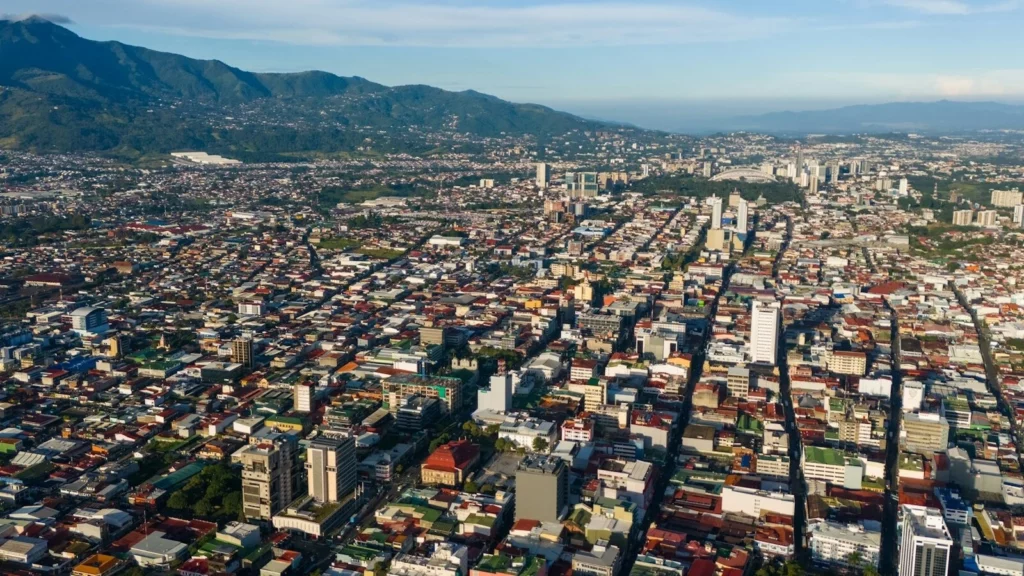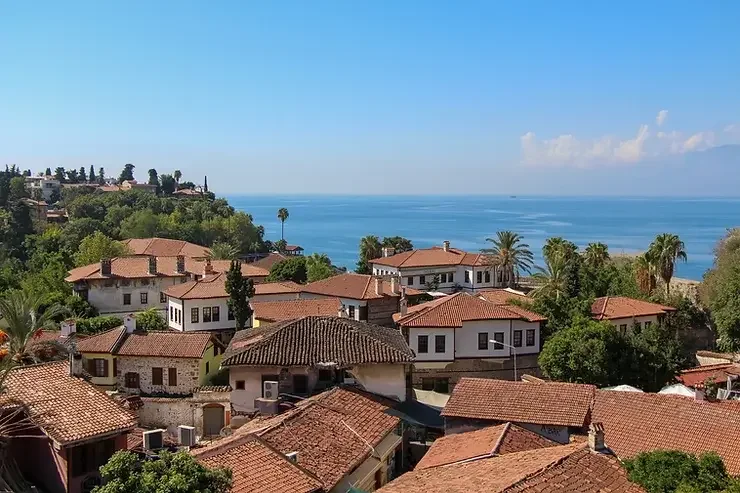A reliable cell phone connection isn’t just a convenience for expats in Costa Rica—it’s essential infrastructure for everyday life. Whether you’re navigating mountain roads, working remotely from your beach house, or simply staying connected with family back home, your choice of phone service significantly impacts your quality of life.
According to the Costa Rican Institute of Statistics, expats spend an average of 32% more on telecommunications than locals do, often because they aren’t aware of all available options. This guide cuts through the confusion to present the five best cell phone solutions specifically designed for long-term foreign residents in 2025.
Costa Rican Telecommunications Landscape
Before diving into specific options, it’s crucial to understand the unique telecommunications environment in Costa Rica. Unlike the highly competitive US market, Costa Rica maintained a state monopoly on telecommunications until 2011, and this legacy still influences the current landscape.
The Three Major Providers: Kölbi, Liberty, and Claro
Costa Rica’s mobile market features three primary carriers, each with distinct advantages and drawbacks for expats:
Kölbi (ICE) – The former state monopoly and still the largest provider with approximately 54% market share. Kölbi offers the most extensive coverage, particularly in rural areas where many expats choose to live. Their English-language customer service has improved dramatically, with dedicated English-speaking agents now available at major locations in expat hubs like Escazú, Tamarindo, and Jacó.
Liberty – Formerly known as Movistar, Liberty (after acquisition by Liberty Latin America) holds about 26% of the market and has positioned itself as expat-friendly with bilingual service, streamlined documentation requirements, and excellent coverage in urban areas and major beach towns. Their international calling packages are particularly attractive for those maintaining close ties abroad.
Claro – Operated by Mexico’s América Móvil, Claro has roughly 20% market share. They typically offer the most competitive pricing and aggressive promotions. Their coverage has improved substantially since 2023 following a major infrastructure investment, though rural coverage can still be spotty in some expat destinations.
Coverage Comparison: Best Networks for Popular Expat Communities
Network reliability varies significantly by location, which is particularly important since many expats choose to live outside major urban centers.
| Expat Area | Kölbi Coverage | Liberty Coverage | Claro Coverage | Best Provider |
|---|---|---|---|---|
| San José Metro (Escazú, Santa Ana) | Excellent | Excellent | Excellent | Any (Claro for best value) |
| Central Pacific (Jacó, Manuel Antonio) | Excellent | Very Good | Good | Kölbi |
| Guanacaste (Tamarindo, Nosara) | Very Good | Very Good | Fair | Kölbi or Liberty |
| Southern Zone (Dominical, Uvita) | Good | Fair | Poor | Kölbi |
| Caribbean Side (Puerto Viejo) | Good | Fair | Fair | Kölbi |
| Lake Arenal Area | Good | Fair | Poor | Kölbi |
| Mountain Communities (Monteverde, San Gerardo) | Fair | Poor | Poor | Kölbi |
Remote workers should note that overall data speeds in Costa Rica average 20-35 Mbps for 4G connections—significantly slower than US averages. 5G service began rolling out in 2023 but remains limited to central San José, with expansion to other expat hubs planned through 2025.
Pro Tip: Before committing to housing in remote areas, check with neighbors about which provider offers reliable service, as coverage can vary dramatically even within small geographic areas.
Legal Framework for Telecommunications in Costa Rica
Costa Rica’s telecommunications are regulated by SUTEL (Superintendencia de Telecomunicaciones), which provides consumer protections that can benefit expats.
Key regulations to know:
- Contracts must be available in English upon request
- Providers cannot charge for early termination if service quality doesn’t meet promised standards
- You have a 7-day “cooling off” period to cancel new contracts without penalty
- Rate increases require 30 days advance notice
- All prepaid credits must remain valid for at least 90 days
These consumer protections can be particularly valuable for expats navigating an unfamiliar system. For disputes, SUTEL offers an online complaint form in English at SUTEL Consumer Protection.
Option 1: Postpaid Plans for Legal Residents
Postpaid plans offer the best value and features for established expats but come with more stringent documentation requirements.
Residency Documentation Requirements
To obtain a postpaid plan, you’ll typically need:
- DIMEX Card (Costa Rican residency ID) – This is the primary requirement and biggest hurdle for new arrivals
- Proof of Address – Utility bill in your name or notarized rental agreement
- Bank Reference – Recent statement from a Costa Rican bank
- Email Address and Local Contact Number – For account verification
If you’re still in the residency process (which often takes 12+ months), alternative options include:
- Using a Costa Rican citizen or permanent resident as a guarantor (they become legally responsible for payment)
- Providing a larger security deposit (typically 2-3 times the monthly plan cost)
- Showing proof that your residency application is in process (acceptance varies by provider and location)
Liberty currently offers the most flexible documentation requirements for expats, sometimes accepting just a passport and rental agreement with an increased security deposit, particularly at their locations in expat-heavy areas.
Contract Terms, Hidden Fees, and Fine Print
Postpaid contracts in Costa Rica typically include:
- Contract Length: 12-24 months is standard, with early termination fees equaling the remaining months’ base charges
- Automatic Renewal: Most contracts automatically renew unless cancelled 30 days before expiration
- Data Throttling: “Unlimited” plans typically reduce speeds after 15-25GB of usage
- International Calling: Often excluded or limited to specific countries, with additional packages available
- Roaming Charges: Extremely high compared to US rates—often $2-5 per minute for calls and $15+ per GB for data
Important Fine Print to Watch For:
- Some plans advertise one rate for the first 3-6 months, then significantly increase.
- Tax increases can be passed on to consumers without being considered a “rate increase”.
- Technical support in English may be limited to business hours.
- Device insurance typically doesn’t cover water damage.
Step-by-Step Application Process
- Research and Select Plan: Compare options based on your specific needs and location
- Gather Documentation: Prepare DIMEX, proof of address, bank references
- Visit Provider Store: Locations in Multiplaza Escazú, Paseo Metropoli, and City Mall Alajuela typically have English-speaking staff
- Complete Application: Fill out contract forms (request English versions)
- SIM Activation: Your SIM will be activated on the spot in most cases
- Configuration Assistance: Staff can help configure your phone’s APN settings
- First Payment: Initial payment includes the first month’s service plus any activation fees
The entire process typically takes one to two hours if you have all required documentation. For those without perfect Spanish, visit stores in upscale malls where English-speaking staff are more common.
Documents Checklist:
- Original DIMEX card (not a copy)
- Passport as secondary ID
- Proof of address (less than 60 days old)
- Bank reference letter or statement
- Credit or debit card for payment
- Unlocked phone (if not purchasing one)
Best Postpaid Plans for Different Expat Profiles
| Expat Profile | Recommended Plan | Monthly Cost (USD) | Key Features | Provider |
|---|---|---|---|---|
| Remote Worker | Liberty Ilimitado Premium | $49 | 25GB high-speed data, unlimited social media, 500 international minutes | Liberty |
| Retiree (Light User) | Kölbi Conversón | $18 | 5GB data, unlimited local calls, WhatsApp doesn’t count against data | Kölbi |
| Business Owner | Claro Empresarial | $35/line (min 3 lines) | Shared data pool, corporate billing, dedicated account manager | Claro |
| Family Plan | Kölbi Hogareño | $75 (4 lines) | 40GB shared data, unlimited calls between plan members, parental controls | Kölbi |
| Part-time Resident | Liberty Suspendible | $32 | Can pause service up to 3 months yearly without penalty, 10GB data | Liberty |
Key Takeaways on Postpaid Plans:
- Only practical for those with legal residency or a local guarantor
- Offer 30-40% better value than prepaid options for consistent users
- Provide priority network access during congested periods
- Include better customer service and account management tools
- Allow for device financing with local credit history
Option 2: Prepaid Plans as Long-term Solutions
For new arrivals and those waiting on residency, prepaid plans offer flexibility with minimal documentation. However, they can also serve as excellent long-term solutions for established expats with the right strategy.
Beyond Tourism: Strategic Prepaid Use for Residents
While typically marketed to tourists, prepaid plans offer distinct advantages for long-term residents:
- No Documentation Requirements – Available to anyone with a passport
- No Credit Checks – Important for those without local credit history
- No Contracts – Perfect for those unsure of their long-term plans
- Controllable Spending – Helps budget-conscious expats avoid bill shock
- Multiple Provider Flexibility – Can maintain SIMs from different carriers for optimal coverage
Prepaid costs have become much more competitive since 2023, with the gap between prepaid and postpaid narrowing significantly. The premium for prepaid flexibility is now only about 15-20% for comparable data amounts.
Managing and Optimizing Prepaid Accounts
Effective prepaid management requires understanding several key aspects:
Recharge Options:
- Physical Cards – Available at supermarkets, pharmacies, and convenience stores
- Online Banking – Most Costa Rican banks offer carrier recharges in their apps
- Provider Apps – All three carriers offer dedicated apps for account management
- Automatic Recharge – Can be set up with local credit cards or bank accounts
Optimizing Validity:
Most prepaid credits expire after 30-90 days depending on the carrier and amount. To extend:
- Kölbi credits can be extended to 365 days with recharges over $20
- Liberty offers a $2 “extender” that prolongs validity by 30 days
- Claro automatically extends validity with any new recharge
Pro Tip: For part-time residents, Kölbi’s higher minimum recharge amount ($5 vs $3 for others) is offset by their longer credit validity, making them the best option for maintaining an active number during absences from Costa Rica.
Option 3: Hybrid US-Costa Rica Phone Solutions
Many expats benefit from maintaining connections in both countries, particularly during their first few years of residence.
Maintaining Your US Number While Living Abroad
Google Voice Strategy
The most cost-effective solution for most expats is porting their existing US number to Google Voice before moving:
- Ensure your US carrier allows number porting (most do, but confirm first)
- Create a Google account if you don’t already have one
- Pay the one-time $20 porting fee
- Complete the porting process (typically 24-48 hours)
- Install the Google Voice app on your phone
- Use with WiFi or Costa Rican mobile data
Advantages:
- One-time $20 fee for permanent ownership of your US number
- Free incoming calls when on WiFi
- Free calls to US/Canada numbers
- Texts work seamlessly
- Voicemail transcription
Limitations:
- Call quality depends on your internet connection
- Some two-factor authentication services don’t work with Google Voice
- Cannot send/receive short-code messages
- Need a separate Costa Rican number for local calls
U.S. Carrier International Plans
For frequent travelers or those needing guaranteed service quality:
- T-Mobile Magenta MAX International ($90/month) – Unlimited data and texting in Costa Rica, $0.25/min calls
- AT&T International Day Pass ($10/day of use) – Use your domestic plan in Costa Rica
- Verizon TravelPass ($10/day of use) – Use your domestic plan in Costa Rica
These options are cost-effective only for those spending substantial time in the US or who travel frequently between countries.
Dual-SIM and eSIM Strategies for Expats
Modern phones with dual-SIM capability offer elegant solutions for managing multiple numbers:
Physical Dual-SIM Options:
- iPhone models since XS (except SE) support dual SIM with a physical SIM + eSIM
- Many Android phones support two physical SIMs
- Some Android devices support two physical SIMs + an eSIM
Recommended Dual-SIM Phones Available in Costa Rica:
| Model | Approximate Cost (USD) | Configuration | Best For |
|---|---|---|---|
| iPhone 15 | $950 | 1 physical SIM + eSIM | Apple ecosystem users |
| Samsung Galaxy S24 | $850 | 2 physical SIMs + eSIM | Android power users |
| Motorola Edge 40 | $490 | 2 physical SIMs + eSIM | Budget-conscious techies |
| Xiaomi Redmi Note 12 | $280 | 2 physical SIMs | Basic dual-SIM needs |
Setting Up an Optimal Dual-SIM Configuration:
- Install your Costa Rican SIM as the primary/physical SIM
- Configure your US number as secondary (either eSIM or second physical slot)
- Set the Costa Rican number as default for data
- Set call preferences by contact or manually select when dialing
- Configure apps that need US verification (banking, etc.) to use the US number
This setup allows you to receive calls on both numbers simultaneously. make local calls using local rates, maintain US-based services that require a US number, and easily manage which line is used for data.
Pro Tip: Many newer devices support “eSIM only” operation.
Cost Analysis: Hybrid vs. Single-Provider Solutions
| Solution Type | Monthly Cost (USD) | Pros | Cons |
|---|---|---|---|
| Costa Rican-only | $15-40 | Simplest solution, lowest monthly cost | Lose US number, international calling expensive |
| Google Voice + CR SIM | $15-40 + $0 | Keep US number nearly free, good functionality | Requires internet for US calls, some services incompatible |
| US Carrier International Plan | $90-300 | Seamless experience, reliable US number | Extremely expensive, often throttled data |
| Dual-SIM (CR + US carriers) | $15-40 + $40-90 | Full functionality, no compromises | Highest total cost, complex management |
| CR Postpaid + VoIP service | $30-50 + $5-10 | Good compromise of features and cost | Requires setup technical knowledge |
For most expats, the Google Voice + Costa Rican SIM combination offers the best value, particularly for those comfortable with technology. The dual physical SIM approach makes the most sense for business owners who need guaranteed availability on both numbers.
Option 4: Business Phone Solutions for Entrepreneurs
Expat entrepreneurs face unique telecommunications challenges that require specialized solutions.
Corporate Plans and Multi-Line Discounts
All three major carriers offer business-specific plans with advantages for companies with multiple lines:
Kölbi Empresarial offers 5+ lines required for business rates, dedicated business customer service line and option to restrict international calling or roaming by line.
Liberty Negocios 3+ lines to qualify, you can have “Pool” data sharing across lines. administrator dashboard for real-time monitoring and priority network access during congestion.
Claro Empresas has most aggressive pricing (typically 20-25% below consumer rates), no minimum line requirement for small business designation, and ability to add/remove lines without contract penalties. Free calls between company lines and mobile PBX features are available.
Integration with US Business Systems
Maintaining seamless business communications across borders requires careful planning:
VoIP Integration Options:
- 8×8: Best international call quality in our tests ($25/line/month)
- RingCentral: Excellent app ecosystem with CRM integrations ($35/line/month)
- Vonage Business: Good value for basic needs ($20/line/month)
These services can provide US and Costa Rican virtual numbers that ring to the same devices, creating a unified business presence regardless of your team’s physical location.
CRM Compatibility Considerations:
- Confirm that your CRM can send SMS internationally if text notifications are important
- Test VoIP call recording function quality before committing
- Ensure customer service platforms can handle both US and Costa Rican numbers
- Check that analytics properly track international vs. domestic interactions
Toll-Free Considerations:
Costa Rican toll-free numbers (starting with 800) cannot be called from the US. For businesses serving both markets, maintain separate toll-free numbers for each country or use international callback services.
Legal Considerations for Business Telecommunications
Business phone expenses in Costa Rica have specific tax and legal implications:
Tax Deductibility:
- Business mobile plans are 100% deductible against company income
- VAT (13%) on telecommunications is recoverable for registered businesses
- Employee personal use must be accounted for to maintain deductibility
- Equipment depreciation follows standard 3-year IT equipment schedules
Employee Phone Policies:
When providing company phones to employees, implement clear policies covering:
- Personal use limitations
- Data usage thresholds
- International calling restrictions
- Privacy expectations
- Security requirements (passwords, encryption)
- Lost/stolen device procedures
Option 5: Internet and Phone Bundled Solutions
For established expats with permanent residences, bundled services often provide significant value.
Home Internet + Mobile Packages Worth Considering
| Bundle Package | Monthly Cost (USD) | Features | Provider | Savings vs. Separate |
|---|---|---|---|---|
| Kölbi Dúo | $75 | 100Mbps fiber internet + 2 mobile lines with 10GB each | Kölbi | ~20% |
| Liberty Fusión | $85 | 150Mbps fiber internet + 2 mobile lines with 15GB each + basic TV | Liberty | ~25% |
| Claro Triple | $90 | 200Mbps cable internet + 2 mobile lines with 12GB each + 120 channel TV | Claro | ~30% |
Contract Considerations with Bundles: Minimum contracts typically run 18-24 months, and early termination fees can be substantial (often 50% of remaining contract value). Moving within covered service areas usually allows contract transfer.
Pro Tip: If you work remotely, the business internet add-on (typically +$15/month) provides priority troubleshooting and faster service restoration—worth considering given Costa Rica’s occasional infrastructure challenges.
Fixed Wireless as an Alternative in Remote Areas
For expats living in more remote locations where fiber or cable infrastructure is unavailable, fixed wireless solutions have improved dramatically since 2023.
How Fixed Wireless Works: It uses cellular networks to deliver home internet via specialized equipment, requires external antenna installation (usually included in setup). It delivers speeds of 15-50Mbps, depending on tower proximity, and can be bundled with mobile service for savings.
Best Fixed Wireless Providers by Region:
| Region | Recommended Provider | Average Speeds | Monthly Cost |
|---|---|---|---|
| Nicoya Peninsula | Liberty 4G Home | 25-40Mbps | $55 |
| Southern Zone | Kölbi Hogareña | 15-30Mbps | $50 |
| Caribbean Coast | Liberty Rural Connect | 20-35Mbps | $60 |
| Mountain Communities | Kölbi Hogar 4G | 10-25Mbps | $45 |
Limitations to Consider: Weather can impact reliability during severe storms, data caps often apply (typically 200-500GB/month), and it has higher latency than fiber (important for video calls). This setup requires clear line-of-sight to towers in many cases.
Fixed wireless technology is rapidly evolving, with newer 5G fixed wireless options beginning to roll out in 2024-2025, promising speeds up to 100Mbps in areas previously limited to much slower connections.
Fiber Optic Expansion and Future-Proofing Your Setup
Costa Rica’s fiber optic network is expanding rapidly, with significant implications for expats choosing where to settle.
Current Fiber Coverage:
- San José metropolitan area: ~90% coverage
- Major beach towns (Jacó, Tamarindo): ~70% coverage
- Secondary towns (Grecia, Atenas, popular expat locations): ~50% coverage
- Rural areas: < 30% coverage but expanding
Key Takeaway: When choosing property, especially for remote workers, factor internet infrastructure into your decision. Proximity to fiber can significantly impact your day-to-day experience and property value over time.
Practical Tips for Managing Your Cell Service in Costa Rica
Navigating telecommunications in a foreign country brings unique challenges that extend beyond choosing a provider.
Spanish Phone Terminology Every Expat Should Know
Communication barriers can complicate everything from plan selection to customer service. Here are essential terms to know:
| English Term | Spanish Term | Pronunciation |
|---|---|---|
| Cell phone plan | Plan de celular | plahn deh seh-loo-LAHR |
| Prepaid | Prepago | preh-PAH-go |
| Postpaid | Postpago | post-PAH-go |
| Data package | Paquete de datos | pah-KEH-teh deh DAH-tos |
| Coverage | Cobertura | koh-behr-TOO-rah |
| Contract | Contrato | kon-TRAH-toh |
| Balance/Credit | Saldo | SAHL-doh |
| To recharge | Recargar | reh-kar-GAHR |
| Signal strength | Señal | seh-NYAHL |
| SIM card | Chip | cheep |
| Network | Red | rehd |
| Roaming | Roaming | ROH-ming |
| Customer service | Servicio al cliente | sehr-BEE-syoh ahl klee-EN-teh |
Useful Phrases for Customer Service:
- “No tengo señal” (I don’t have signal)
- “Necesito recargar mi saldo” (I need to recharge my balance)
- “¿Cuánto saldo tengo?” (How much credit do I have?)
- “Quiero cambiar mi plan” (I want to change my plan)
- “¿Habla inglés?” (Do you speak English?)
- “La factura es incorrecta” (The bill is incorrect)











